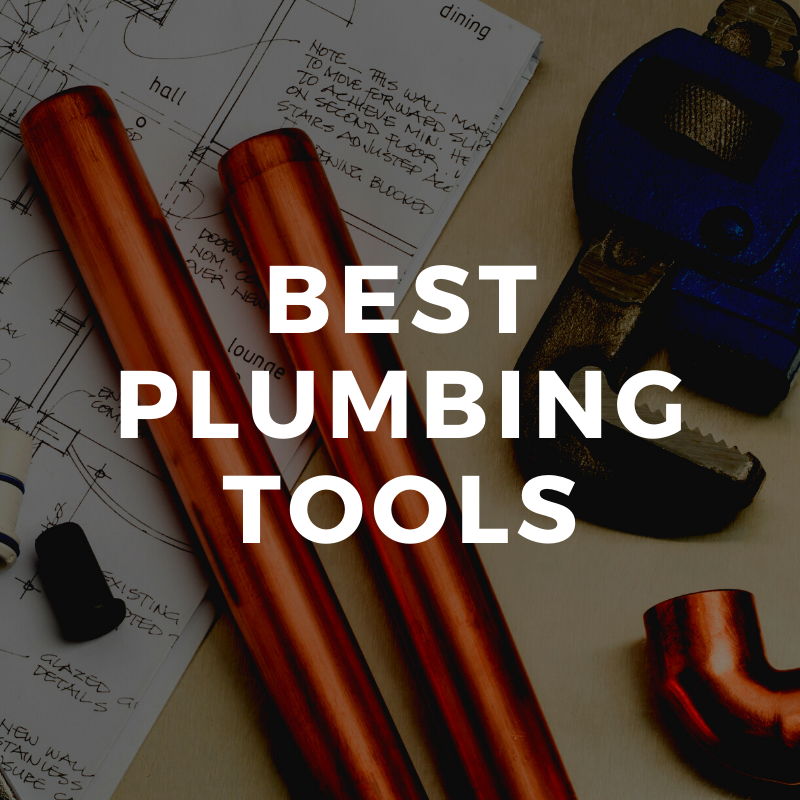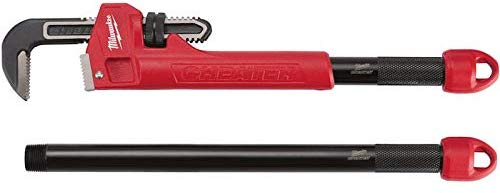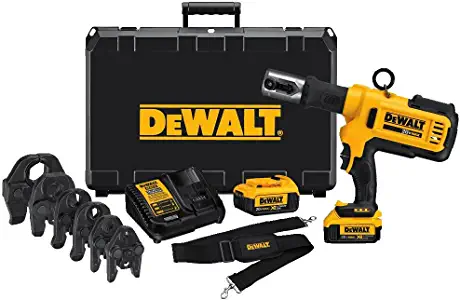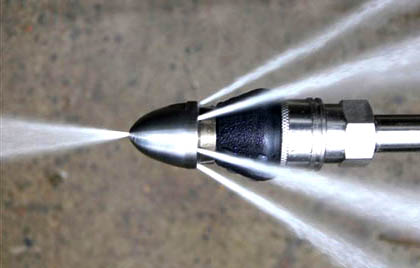
From drain snakes to a sturdy set of wrenches to accounting software, here are the tools you’ll need to run a successful plumbing business – including the best plumbing tools for 2021.
Essential plumbing equipment (a.k.a. “the basics”)
Like most service-oriented trades, plumbing is a tool-heavy profession. First, the basics. Here are some tools every plumber must have in their kit:
Impact driver
Superior to a drill, an impact driver delivers excellent torque for removing and tightening bolts and screws. Nothing is better is at removing frozen or stuck nuts and screws (freezing is a common occurrence where metal meets water and time).Most are also compact, making them excellent toolbox tools. Make sure to get a wide variety of nut drivers and screw heads.
Cordless drill
You’ll still probably want a cordless drill, however, for those times you need to run line or punch a hole through something. This will also double-up as a power unit for some drain augurs, which attach to the cordless drill to get power to turn and drive the mechanism.
Hex keys and hex bits
Hex fasteners are pretty common in homes and businesses, so plumbers should have a complete set of Allen wrenches as well as hex bits that fit into a power drill or impact driver to more quickly remove and replace various hex screws.
Thread tape
Thread tape, critical for getting good seals and preventing leaks, is a plumber’s best friend. Ideally, you’ll have tons of the stuff. Buy in bulk and don’t get too low.
Plungers
It’s shocking how often a “hard job” can be solved with just a bit of low tech plunging. Keep in mind there are several different types of plungers, each suited to specific jobs. The half-dome plunger – the image that probably comes to mind when you think “plunger” – is only really meant for sinks.You’ll also need to acquire an accordion plunger, for cleaning more heavy-duty clogs, as well as a toilet plunger, which looks like the sink plunger but has an additional inverted “cup” on the end to help create a good seal with the toilet bottom.
Drain snakes and augers
Drain snakes and augurs are a plumber’s bread and butter tools. A mix of less expensive hand augers for small jobs for sinks, tubs, and toilets, and larger mechanical electric snakes for bigger jobs are a must.Of the electric snakes, some heavy-duty ones are powered independently, but many integrate with a power drill to provide necessary turning power for the auger to clear clocks deep within a pipe system.
Rotary hammer
For cutting into stone masonry, plaster, or other tough materials, a rotary hammer makes the job significantly easier.
Work light
Let there be light! A work light is an essential tool in your arsenal for when you’re crawling under homes and in dark, largely inaccessible places. A headlamp is a particularly good idea since the light tracks with you as you turn your neck.
Level/laser level
Any time you’re trying to line something up on a wall you’ll be grateful to have your trusty level handy. While a traditional level is fine, we highly recommend investing in a laser level, which is just as accurate but less cumbersome to use and move around.

Adjustable pipe wrench
You’re a plumber! You’re going to need to pipe wrenches large and small. While a full set of different varieties is great, consider a “cheater” pipe wrench that adjusts to the size you need.
Pliers
Pliers are a plumber’s best friend. Locking pliers, needlenose, slip joint, and channel lock pliers will all come in handy at various points of various jobs. You never know the layout of an interior pipe layout (how tight the fit, etc.)
Basin Wrench
The basin wrench (or simply “sink wrench”) is a specialized tool for loosening nuts and screens in hard-to-reach areas. The kind of tool you don’t know you need until you need it – and then you really need it.
Faucet key
This simple tool. also known as a “Sillcock key” is used to open and close water spigots. Pretty important for a plumber. You’ll need a variety of sizes to fit different setups, but multiple adapter versions of these also exist to simplify things.
Pipe and tube cutters
Close-quarters, copper, PVC, and “multi-purpose” pipe and tube cutters are essential for plumbers doing installations and renovations of existing pipework. These adjust to the width of the pipe you need to cut and let you score the material until you make your way through the pipe and cut it to length.
Hacksaw
Less elegant than a pipe or tube cutter, but a hacksaw is useful and quick for rough cutting work.
Safety equipment
Though it’s not the world’s most dangerous profession, eye protection, medium-duty gloves, and steel-toed boots are should still be part of your plumbing tools kit. If you are doing any soldering or welding, a proper heat mask is also a requirement.
Specialized plumber tools

Beyond the basics, however, are tools you might like to own but might not yet have the budget for yet or in the particular professional niche to make purchasing these items make sense. These are some of the best plumbing tools that are specialized:
Pipe inspection camera
For instance, not every plumber does video pipe inspections, but if you do, you’ll need a good pipe inspection camera (also known by the infinitely more badass name of “industrial endoscope”). A great many plumbers heartily recommend the ROCAM Pipe Inspection Camera, though there are many other models from reputable manufacturers to choose from.
Plumbing pipe press
If you need to shape and crimp copper pipe, then a plumbing press tool is non-negotiable. These come in a variety of sizes, shapes, costs, and versatilities, so choose carefully the one that is right for the current scope of your plumbing business.
PEX Pipe Expander & Fittings
PEX, or cross-linked polyethylene, is becoming an increasingly common and cheap option for install lines beneath and through a house. PEX doesn’t freeze like copper does – and most importantly does not first – costs less, and won’t rust.PEX may not be super common among your customer age, but if you do work with the material (or are planning to) you should invest in some PEX pipe fittings and an expander.
Soldering iron/Plumbing torch
There’s only one way to create leak-proof joints in metal, and it’s by picking up a torch. To bind piping together, i.e., soldering them, you’ll need to get either a small MAPP gas or propane torch with solder and flux.Don’t forget to also buy fire-resistant soldering bad to collect any fallen flux or molten metal. without damaging your clients’ floors.
Metal detector
This one’s a little out of left field, but a metal detector makes the job of finding buried pipes or access boxes significantly easier. No digging around trying to find the right spot; just get in there.
Best plumbing tools for long-term investment

Those are not even the biggest ticket items, however. Others demand a significant financial investment that is only a really good fit if you have a larger company, a smaller one you’re trying to grow, or a lot of disposable income.
Hydro jetting drain cleaner
This is just cool. A hydro jetting machine, like it sounds like, uses high-pressure water to clear out cogs and stoppages. Essentially a pressure washer for drain pipes, this too hooks up to propane or MAPP gas to power the device.Ultimately, this sort of device is “greener” than alternatives, including any kind of chemicals, although the pipes should still be examined before using one of these cleaners just in case there’s damage in the pipe that could be exacerbated by pushing 2,000 to 3,000 PSI through the drain.
FlexShaft high-speed drain cleaning device
A relatively new tool in the profession, the flexible shaft drain cleaning tool is somewhat revolutionary in its ability to circumvent bends and expand to the whole circumference of the pipe shaft. While expensive – the gold standard made by Ridgid run $1,000+ – they’re potentially revolutionary in terms of long-term savings on your time.
Making your plumbing business more efficient

Your hand and power tools aren’t the only weapons in your arsenal, however. So much of a successful plumbing business is about the other stuff: Scheduling jobs, managing crew, making estimates, dispatching workers, and collecting on invoices, not to mention marketing and sales.
Even if you have a largely referral-based business, the administrative side of things takes up a tremendous amount of time. Time that if you spend on the job site could actually be earning you more money.
That’s where our best plumbing tool – field service software – comes in. Designed with industry professionals, FieldPulse’s software lets manage operations, coordinate your team, track customer data, and create quick estimates for all your jobs – and that’s just scratching the surface.
Plus, with versions for iPhone, Android, and an online WebApp, you can use it anywhere, at any time, to supercharge your business.Check out a free, full-featured 14-day trial here.
